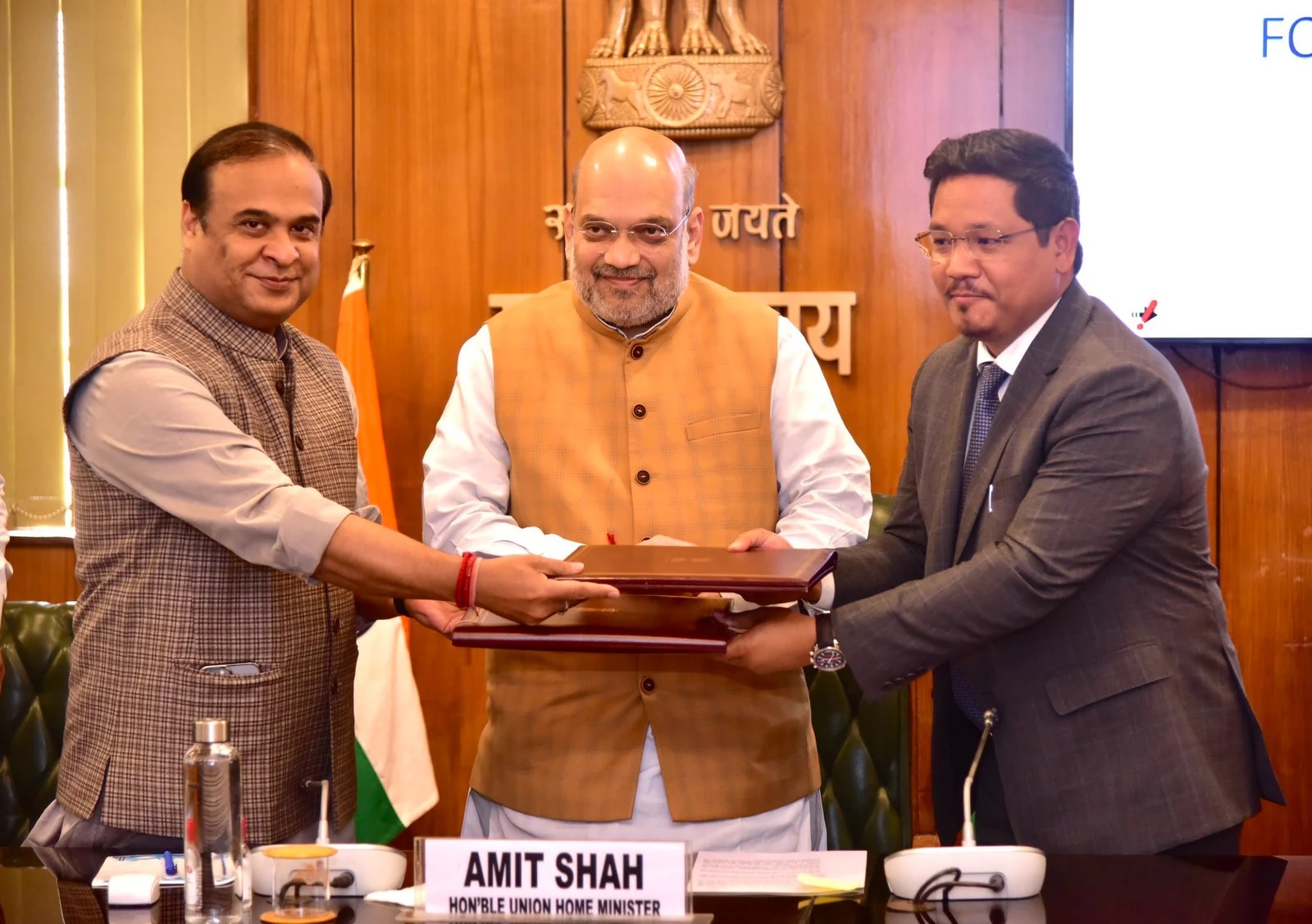Amid ongoing discussions on the Assam-Meghalaya border dispute, Assam Chief Minister Himanta Biswa Sarma reaffirmed that the demarcation process is progressing, with the Survey of India carrying out the work as per the agreement signed between the two states. He emphasized that the pact, reached in the presence of Union Home Minister Amit Shah, remains binding on both governments. While six areas of difference remain unresolved, Sarma indicated that three could be settled soon, but Meghalaya appears to be waiting for all six to be resolved together.
Assam Chief Minister Himanta Biswa Sarma on Friday said, “Six pending disputes are there, out of that three we can resolve at any point of time, I think Meghalaya is waiting to see that the other three is also resolved together, so we are working on, we will keep on working and I am sure that the balance six will be resolved mutually.”
His remarks come at a time when calls for a reassessment of the boundary agreement have gained momentum. Responding to queries on the status of border talks, Sarma reiterated Assam’s readiness to resolve the issue while pointing out that Meghalaya seems to be waiting for all six pending disputes to be settled together. “From Assam side we are eager to resolve the pending dispute. Six pending disputes are there, out of that three we can resolve at any point of time, I think Meghalaya is waiting to see that the other three is also resolved together, so we are working on, we will keep on working and I am sure that the balance six will be resolved mutually,” he said.
On the timeframe for resolving the remaining areas of difference, Sarma acknowledged the complexities involved, stressing the need for patience given the strong public sentiments on both sides of the border. “This involves people’s sentiment of both the states so, time frame is not good but at the same time we should hope and pray that it will be resolved sooner than later,” he remarked.
With six out of twelve disputed areas already resolved through a formal agreement, the focus remains on addressing the remaining contentious regions. While the pace of negotiations has slowed, Sarma’s remarks reaffirm the ongoing efforts to achieve a mutually acceptable resolution, balancing administrative decisions with the concerns of those affected.


